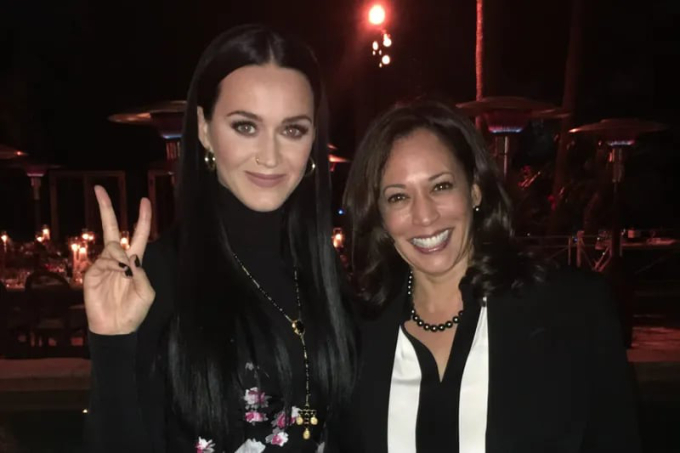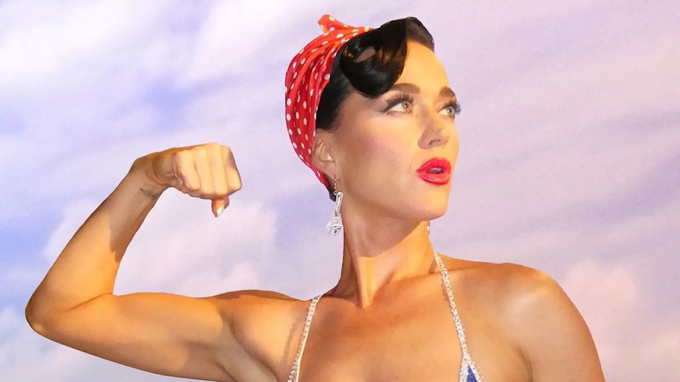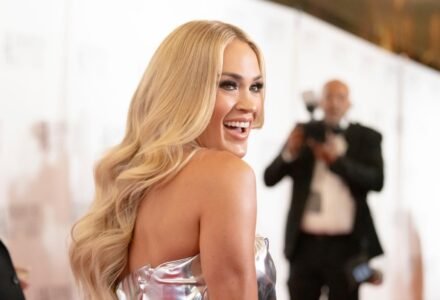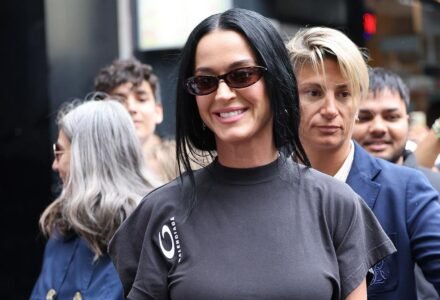When global pop sensation Katy Perry set her sights on contributing a song to a United States presidential campaign, she likely expected a warm reception given her previous political engagements. Having provided anthemic tunes and voiced ardent support for candidates like Hillary Clinton, Perry’s offer seemed almost predestined to be embraced. Yet, to the shock and confusion of many, Perry found herself in an unexpectedly awkward situation: her song was outright rejected by the campaign team.

The singer, renowned for her chart-topping hits and energetic stage presence, had hoped to continue her tradition of political involvement by crafting a custom track for the latest Democratic contender. Such acts are part of Perry’s identity, blending her musical prowess with her desire to influence civic life. However, this time the campaign took a different route, opting to embrace a song from another artist entirely, leaving Perry, in a word, humiliated.
The atmosphere around the campaign trail has always been electric, and music plays a pivotal role in shaping the narrative. The right track can encapsulate the essence of a candidate, rally supporters, and create an indelible mark in political history. Which makes the choice so critical and, in this instance, quite controversial.
The song that ultimately clinched the position as the campaign’s anthem hailed from none other than Billie Eilish. The young pop prodigy, who has swiftly ascended to meteoric fame with hits like Bad Guy and Everything I Wanted, possesses a distinctive style that seemingly resonated more with the campaign’s vision and youthful demographic. Eilish, known for her haunting vocals and darkly evocative themes, provided an edge that the campaign felt was more in sync with their desired message and image.

The decision certainly came as a surprise to Perry's devoted fans. Social media platforms lit up with debates, comments, and comparisons as fans and political observers alike weighed in on the surprising twist. Perry's followers, often as passionate as they are numerous, expressed a mix of disappointment and bewilderment. Many questioned the rationale behind sidelining a seasoned performer with a proven track record for a younger, albeit equally talented, artist.
Industry insiders suggest that the decision may have hinged on the evolving dynamics of pop culture and political branding. Billie Eilish represents a newer generation, echoing sentiments of climate awareness, mental health advocacy, and a redefined musical genre that perhaps aligns more closely with current societal undercurrents. It is a nuanced alignment of values and aesthetics, one that ultimately led the campaign to make what some consider a bold move.
Katy Perry, though taken aback, has not publicly addressed the incident in detail. Instead, she continues to focus on her music and other philanthropic endeavors. In the often mercurial world of fame and politics, such setbacks are par for the course, yet they serve as a reminder of the unpredictable nature of public favor and the importance of aligning artistic vision with evolving cultural tides.
This episode, while disheartening for Perry, opens a window into the intricate dance between politics, music, and cultural relevancy. It underscores the ever-present challenge artists face when intertwining their work with the dynamic landscape of political campaigns.






